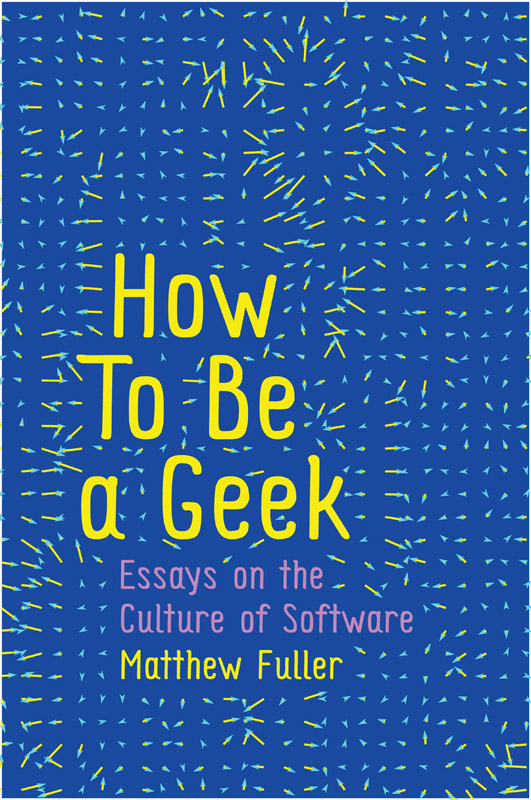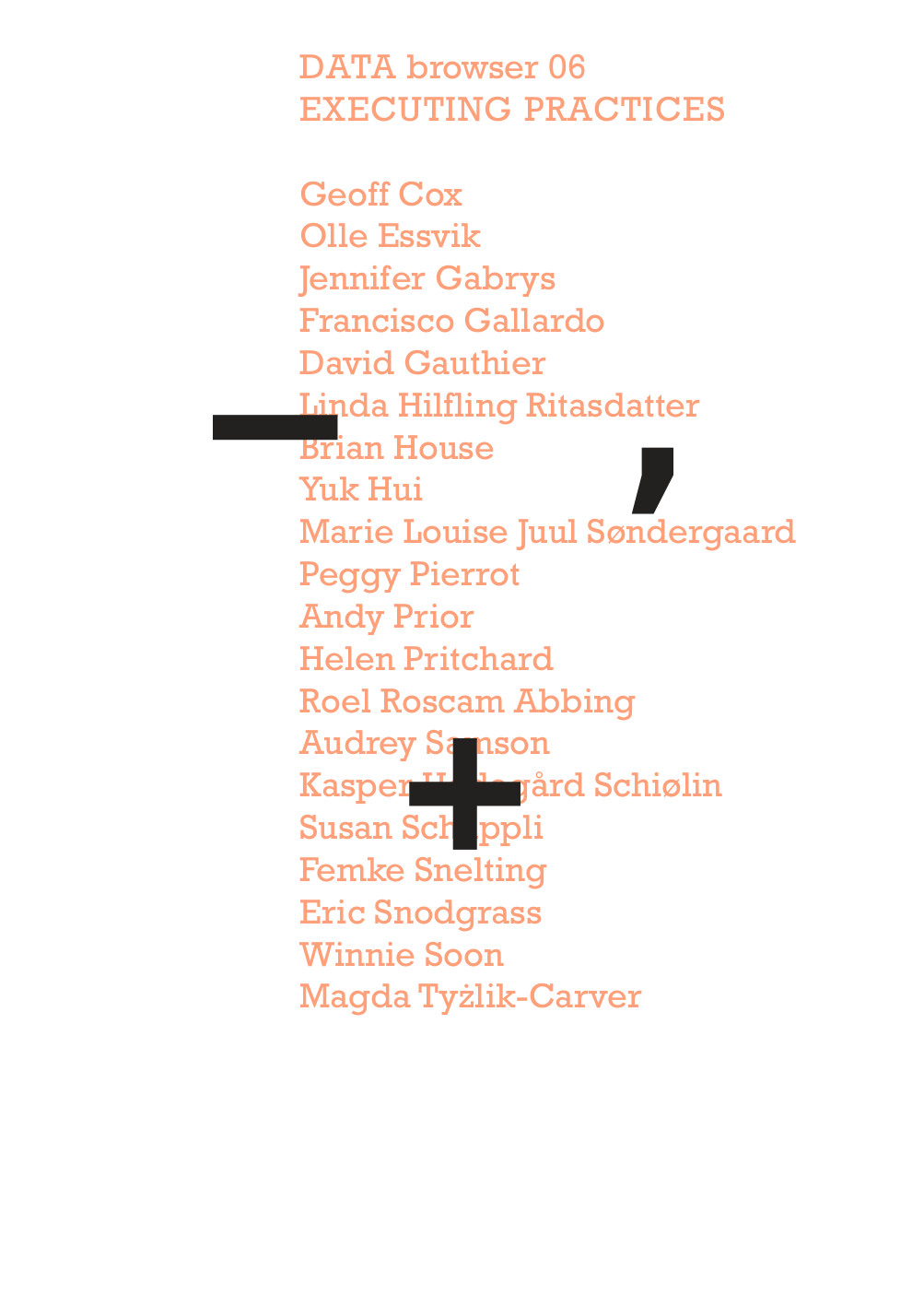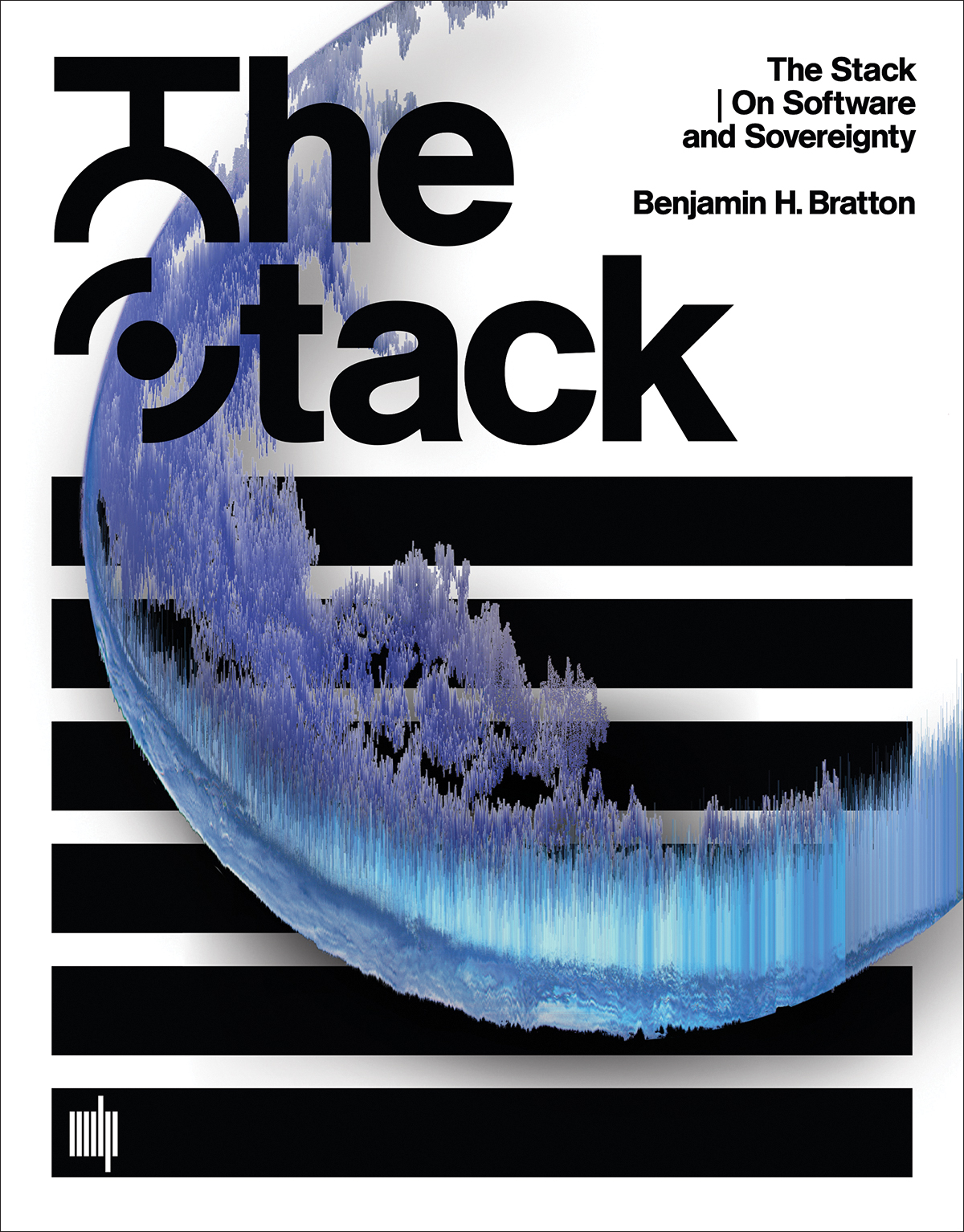Matthew Fuller: How To Be a Geek: Essays on the Culture of Software (2017)
Filed under book | Tags: · aesthetics, algorithm, computation, computing, database, information, language, media, media theory, networks, programming, software, software studies, theory

“Computer software and its structures, devices and processes are woven into our everyday life. Their significance is not just technical: the algorithms, programming languages, abstractions and metadata that millions of people rely on every day have far-reaching implications for the way we understand the underlying dynamics of contemporary societies.
In this innovative new book, software studies theorist Matthew Fuller examines how the introduction and expansion of computational systems into areas ranging from urban planning and state surveillance to games and voting systems are transforming our understanding of politics, culture and aesthetics in the twenty-first century. Combining historical insight and a deep understanding of the technology powering modern software systems with a powerful critical perspective, this book opens up new ways of understanding the fundamental infrastructures of contemporary life, economies, entertainment and warfare.
In so doing Fuller shows that everyone must learn ‘how to be a geek’, as the seemingly opaque processes and structures of modern computer and software technology have a significance that no-one can afford to ignore. This powerful and engaging book will be of interest to everyone interested in a critical understanding of the political and cultural ramifications of digital media and computing in the modern world.”
Publisher Polity, 2017
ISBN 9781509517152, 1509517154
x+233 pages
Helen Pritchard, Eric Snodgrass, Magda Tyźlik-Carver (eds.): Executing Practices (2017–)
Filed under book | Tags: · algorithm, execution, politics, software, software studies, time

“This collection brings together artists, curators, programmers, theorists and heavy internet browsers whose practices make critical intervention into the broad concept of execution. It draws attention to their political strategies, asking: who and what is involved with those practices, and for whom or what are these practices performed, and how? From the contestable politics of emoji modifier mechanisms and micro-temporalities of computational processes to genomic exploitation and the curating of digital content, the chapters account for gendered, racialised, spatial, violent, erotic, artistic and other embedded forms of execution. Together they highlight a range of ways in which execution emerges and how it participates within networked forms of liveliness.”
Contributors: Roel Roscam Abbing, Geoff Cox, Olle Esvik, Jennifer Gabrys, Franciso Gallardo, David Gauthier, Linda Hilfling Ritasdatter, Brian House, Yuk Hui, Marie Louise Juul Søndergaard, Peggy Pierrot, Andy Prior, Helen Pritchard, Audrey Samson, Kasper Hedegård Shiølin, Susan Schuppli, Femke Snelting, Eric Snodgrass, Winnie Soon, Magda Tyżlik-Carver.
Publisher Autonomedia, New York, 2017
Data Browser series, 6
Creative Commons BY-NC-SA 3.0 Unported License
ISBN 9781570273216
279 pages
New version
Publisher Open Humanities Press, Nov 2018
Data Browser series, 6
Creative Commons BY-SA 4.0 Unported License
ISBN 9781785420566
310 pages
Review: Monika Szűcsová (Computational Culture, 2021).
Book series
Publisher (2018)
PDF, PDF (2017, 24 MB, updated on 2017-4-10)
PDF, PDF (2018, 12 MB, added on 2018-11-28)
EPUB, EPUB (2018, 21 MB, added on 2018-11-28)
Benjamin H. Bratton: The Stack: On Software and Sovereignty (2016)
Filed under book | Tags: · architecture, automation, city, cloud computing, computation, earth, geopolitics, infrastructure, interface, internet of things, software, software studies, technology, theory

“What has planetary-scale computation done to our geopolitical realities? It takes different forms at different scales—from energy and mineral sourcing and subterranean cloud infrastructure to urban software and massive universal addressing systems; from interfaces drawn by the augmentation of the hand and eye to users identified by self—quantification and the arrival of legions of sensors, algorithms, and robots. Together, how do these distort and deform modern political geographies and produce new territories in their own image?
In The Stack, Benjamin Bratton proposes that these different genres of computation—smart grids, cloud platforms, mobile apps, smart cities, the Internet of Things, automation—can be seen not as so many species evolving on their own, but as forming a coherent whole: an accidental megastructure called The Stack that is both a computational apparatus and a new governing architecture. We are inside The Stack and it is inside of us.
In an account that is both theoretical and technical, drawing on political philosophy, architectural theory, and software studies, Bratton explores six layers of The Stack: Earth, Cloud, City, Address, Interface, User. Each is mapped on its own terms and understood as a component within the larger whole built from hard and soft systems intermingling—not only computational forms but also social, human, and physical forces. This model, informed by the logic of the multilayered structure of protocol “stacks,” in which network technologies operate within a modular and vertical order, offers a comprehensive image of our emerging infrastructure and a platform for its ongoing reinvention.
The Stack is an interdisciplinary design brief for a new geopolitics that works with and for planetary-scale computation. Interweaving the continental, urban, and perceptual scales, it shows how we can better build, dwell within, communicate with, and govern our worlds.”
Publisher MIT Press, 2016
Software Studies series
ISBN 9780262029575, 026202957X
xx+502 pages
Reviews: Mercedes Bunz (Media Culture Society, 2016), Roger Whitson (2016), Marc Tuters (Computational Culture, 2017).
Commentary: McKenzie Wark (Public Seminar, 2016), Lukáš Likavčan (Hong Kong Review of Books, 2017; Artalk, CZ).

